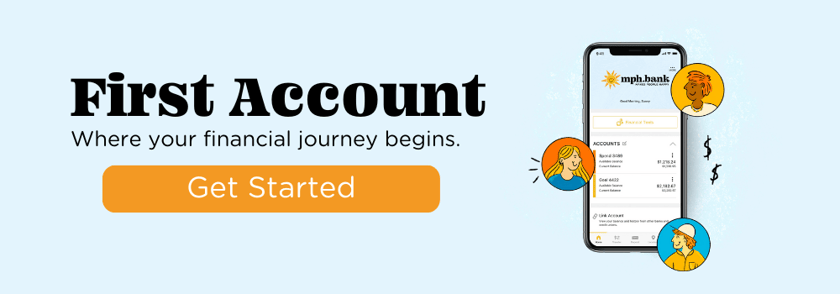If you're a student, managing your finances is an essential part of your journey towards financial independence. One crucial tool that can help you on this path is a student checking account. But like any financial decision, it's essential to understand the pros and cons before making your choice. In this article, we'll guide you through the considerations, so you can make an informed decision about whether a student checking account is right for you.
Related Article: College Students Looking For Financial Tips
The Pros of Student Checking Accounts
1. Low Fees
One of the most significant advantages of a student checking account is the low fees associated with it. Many banks offer student-friendly accounts with little to no monthly maintenance fees, which can save you money compared to regular checking accounts.
2. Convenient Access
Student checking accounts often come with a range of access options, including online banking, mobile apps, and ATMs. This convenience makes it easy to manage your finances, check your balance, and make payments from your phone or computer.
3. Debit Card
Most student checking accounts come with a debit card, which is a versatile financial tool. You can use it to make purchases in-store and online, withdraw cash from ATMs, and even set up mobile payment options like Apple Pay or Google Pay.
4. Build Credit
Some student checking accounts offer the option to link a credit card or provide you with a secured credit card. This can be an excellent opportunity to start building your credit history, which is important for your financial future.
5. Financial Education
Many banks offer resources and tools designed to help students learn more about managing their finances. You may have access to online courses, workshops, or personalized financial advice to help you make the most of your account.
6. Security
Student checking accounts typically come with security features such as fraud protection and zero liability for unauthorized transactions, which can provide peace of mind in case your account is compromised.
The Cons of Student Checking Accounts
1. Limited Features
While student checking accounts are designed to be student-friendly, they may lack some features that standard checking accounts offer. For instance, they may have lower withdrawal limits, fewer check-writing privileges, or limited interest rates.
2. Age Restrictions
Student checking accounts are generally available to students under a certain age, typically 24 or younger. Once you pass this age limit, your account may automatically convert to a standard checking account, which could mean higher fees and different terms.
3. Overdraft Fees
Some student checking accounts may still charge overdraft fees if you spend more money than you have in your account. Be sure to read the fine print and understand the overdraft policies of your chosen bank.
4. Limited Accessibility
While online and mobile banking options are often available, some smaller or local banks may have limited ATMs and branch locations. If you plan to travel or study in a different city, make sure your bank has an accessible network.
5. Credit Card Temptation
If your student checking account includes the option to link a credit card, it can be tempting to accumulate credit card debt. Using this feature wisely is crucial to avoid financial pitfalls.
6. Credit History Impact
While a student checking account can help build a positive credit history, mismanagement can have the opposite effect. Late payments, overdrafts, and unpaid fees can damage your credit score.
What to Consider When Choosing a Student Checking Account
Now that you're aware of the pros and cons of student checking accounts, it's essential to consider several factors before selecting the right one for you:
Research and Compare
Investigate multiple banks and financial institutions. Compare account types, fees, interest rates, and terms. Don't rush this decision; it's a vital part of your financial well-being.
Age and Eligibility
Ensure that you meet the age and student status requirements for a student checking account. Some banks may also require proof of enrollment or a specific minimum balance to open an account.
Fees and Charges
Pay close attention to any fees associated with the account. Look for accounts with no or minimal monthly maintenance fees, ATM fees, and overdraft charges.
Access and Convenience
Consider the bank's accessibility in terms of ATMs, branches, and online banking features. Choose an option that suits your lifestyle and location.
Debit Card and Credit Options
Evaluate whether the account includes a debit card and, if applicable, options to link a credit card. Understand the responsibilities and potential consequences of using credit features.
Credit History Building
If building credit is one of your goals, check if the bank reports to credit bureaus. Ensure that you manage your account responsibly to build a positive credit history.
Financial Education
Take advantage of any financial education resources the bank offers. These resources can help you improve your financial literacy and make better money decisions.
Security and Protection
Review the security features offered by the bank, including fraud protection and the process for reporting any unauthorized transactions.
Long-Term Considerations
Think about your financial goals beyond your student years. Will this account still meet your needs once you graduate and enter the workforce?
Seek Recommendations
Ask for recommendations from fellow students or family members who may have experience with student checking accounts. Their insights can be valuable.
Long Story Short
A student checking account can be a valuable tool in managing your finances while in school. It offers convenience, low fees, and the opportunity to build your financial skills. However, it's essential to consider the potential drawbacks, such as limited features and age restrictions. By carefully weighing the pros and cons and considering the factors mentioned above, you can make an informed choice that aligns with your financial goals and circumstances.
Remember that your choice of a student checking account is a step towards financial independence, and a well-informed decision can set you on the path to a secure and prosperous financial future.
What do fish use as currency to purchase anything?
Sand Dollars! Sign up to receive important information on banking, financial tips, and jokes like this directly to your inbox










